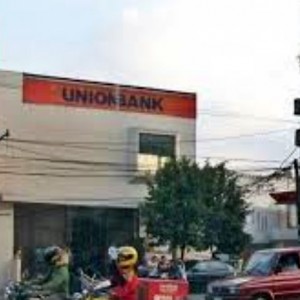
Unionbank’s prospective entry as a strategic investor in EIB is backed by the bank’s uninsured depositors. EIB has about P10.7 billion in uninsured deposits, a majority of whom—holding a combined deposit of P8.2 billion—had given special powers of attorney to a group called “Coalition of EIB Uninsured Depositors” seeking the rehabilitation of the bank as an alternative to liquidation.
In a telephone interview with the Inquirer on Saturday, UnionBank president Victor Valdepeñas confirmed that his bank had “formally” expressed interest to come in as a “strategic investor” in EIB. The bank had written the Bangko Sentral ng Pilipinas to present its offer.
“It’s part of our strategy moving forward toward integration. You need to be of good size because in the future, maybe in the next decade, as the Asean integration takes foothold, competition will become more intent and as the regional market becomes enlarged, you need bigger players,” he said.
“We look forward to opportunities for us, to expand both organically and inorganically,” Valdepeñas added. “Acquisition, as part of strategy, is more compelling now because of the prospects and fast developments as far as the economic blocks are concerned.”
Union Bank has had experience in mergers and acquisitions in the past two decades, having taken over City Savings Bank in 2013, International Exchange Bank in 2006 and The International Corporate Bank in 1994.
“We are encouraged by the expression in interest of Unionbank to participate in the rehabilitation of EIB. We forged a general agreement with Unionbank wherein a portion of our uninsured deposits in EIB will be converted into the bank’s equity while the remainder will be treated as deferred time deposits that will earn interest,” the coalition of uninsured depositors said in a letter to the BSP dated March 3.
The coalition said they had chosen to partner with Unionbank, the latter being “one of the leading universal banks in our country that can sufficiently meet the capital requirements to rehabilitate EIB.” In its letter to the BSP, the coalition appealed to banking regulators to seriously consider Unionbank’s offer.
“When before we only had our personal savings and retirement funds to think about, now we share each other’s worries of losing the deposits of cooperatives, small-scale businesses, scholarship foundations, mutual fund associations and nonprofit institutions,” the coalition said.
Industry sources said Unionbank was ready to come in under a framework for financial assistance almost similar to what the BSP had approved in 2010 when Banco de Oro Unibank was about to take over EIB’s assets and liabilities. The central bank had agreed then to extend from 10 to 25 years the coverage of the P10-billion financial assistance originally granted to EIB in 2005 after its merger with Urban Bank.
This P10-billion financial assistance was used to buy government securities, with the interest earnings providing income support to EIB, which, unfortunately, continued to suffer losses. The bank was shut down by the BSP in 2012 and ordered to be put up for liquidation last year.
BDO backed out of the EIB deal due to concerns on a lawsuit against EIB’s brokerage unit, which would have made its takeover very costly.
The case referred to a lawsuit filed by a group affiliated with businessman William Gatchalian against EIB’s stockbrokerage unit. A regional trial court ordered EIB’s brokerage unit to pay P1.5 billion in damages to the group. But the Supreme Court later resolved the debate on the so-called “piercing of the corporate veil of corporate fiction.” The high court ruling said the doctrine might be applied only “to determine established liability, not to confer jurisdiction that was never acquired.” This was believed to have removed the overhang on EIB in case a white knight comes in although by that time, EIB had already been padlocked by the BSP.
Asked whether he was concerned about the Gatchalian case, Valdepeñas said: “This will form part of our due diligence. If ever that the MB will consider our interest as a strategic partner, it is normal that we conduct our own due diligence that will consider not only financial aspects, but legal aspects.”
Meanwhile, the uninsured depositors have gone as far as Congress to seek assistance. Last Feb. 20, House Resolution 869 was introduced by Representatives Ronald Cosalan, Romero Quimbo and Jesulito Manalo directing the committee on banks and financial intermediaries to conduct an inquiry, in aid of legislation, on the plight of depositors of EIB and other closed banks.

